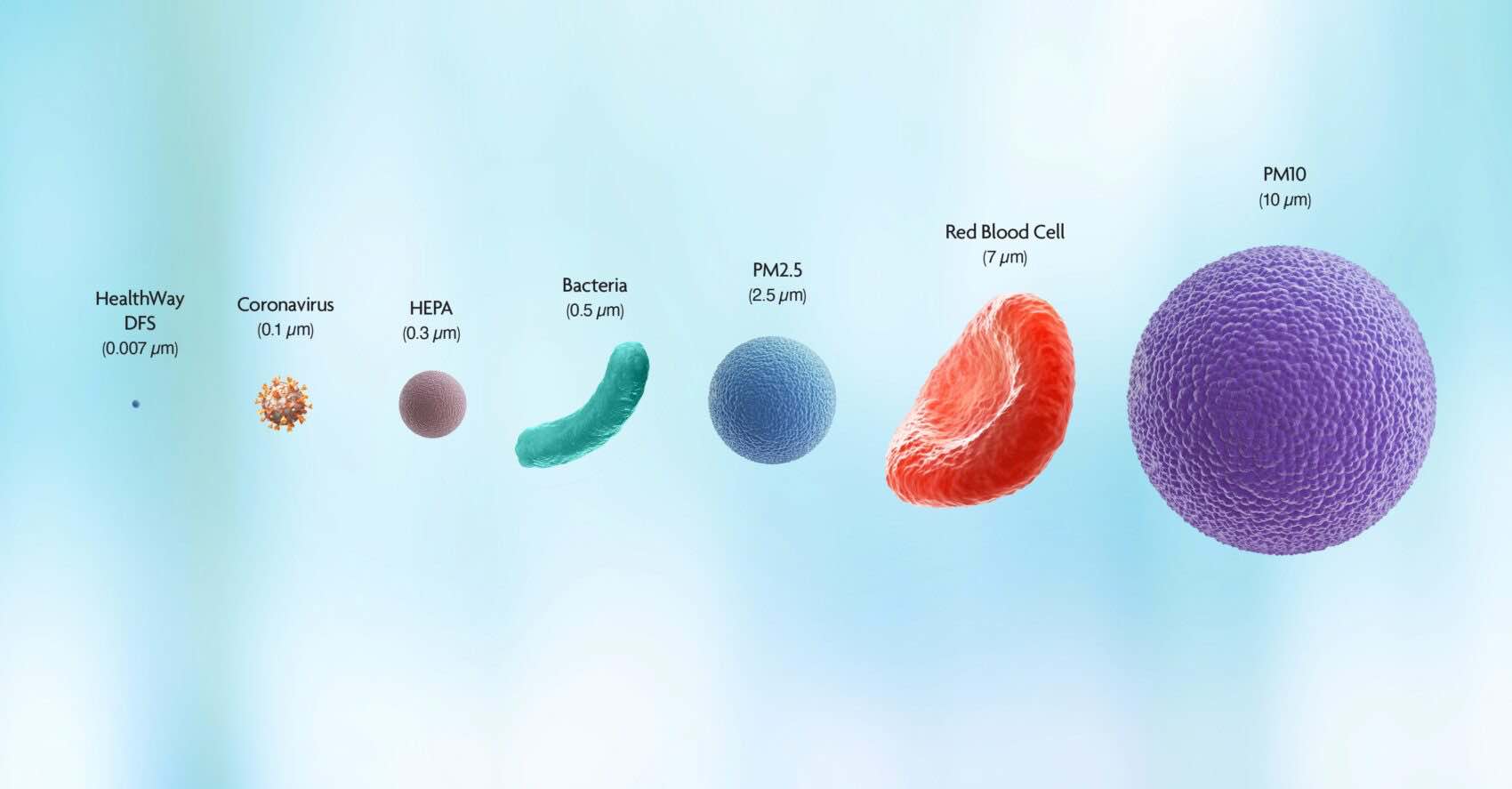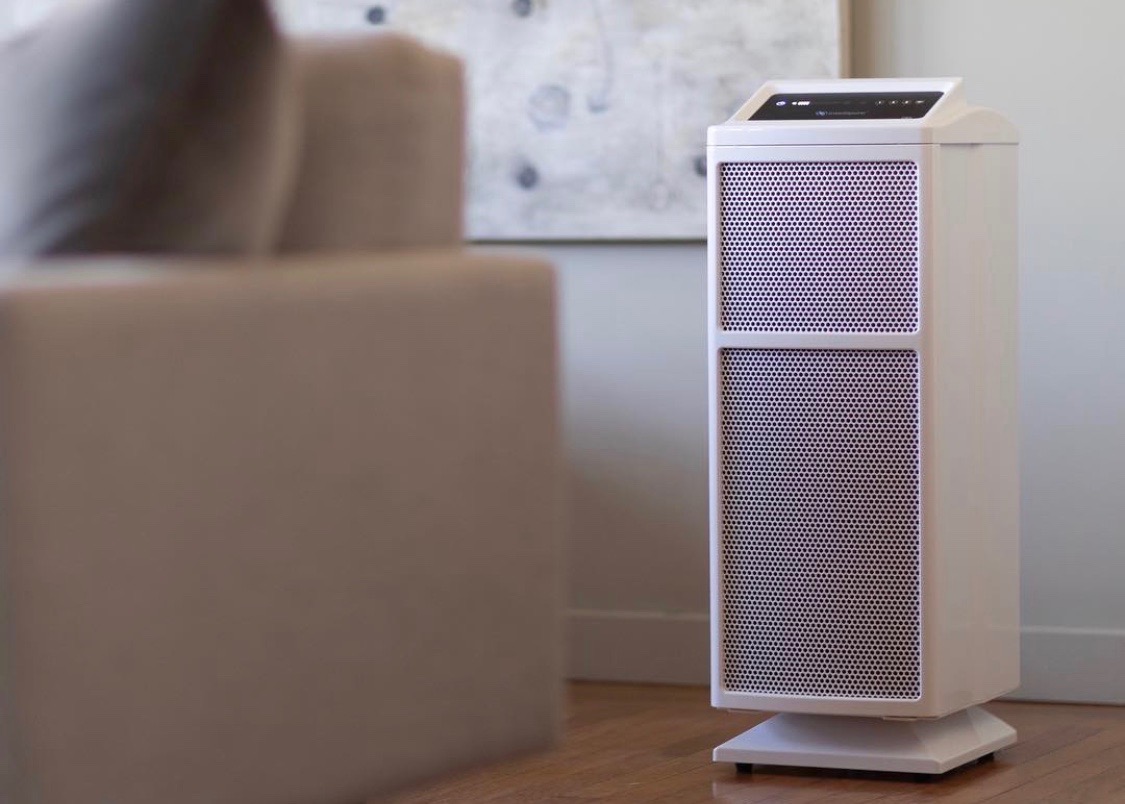Did you know indoor air is 2-5x more polluted than outdoor air, according to the EPA?
After interviewing dozens of functional and integrative medicine doctors on my podcast, it’s clear that limiting exposure to hormone- and immune-disrupting chemicals is important for good health. I was shocked to learn that our home environment is one of the top sources of pollution exposure for many people.
In this article, I’ll break down why indoor air is so polluted, the health risks associated with it, my Intellipure review and why the Intellipure Air Filter is the most effective and best air purifier on the market. Use the Intellipure coupon code HAPPIER for 10% off your order.
Why is indoor air so polluted?
Our modern air-tight buildings and homes typically don’t get much fresh air, if any, so any pollutants or toxins that are brought in, typically remain. This is especially true for city apartments, in which windows are rarely opened, and when they are, it’s usually only open a couple of inches.
Things that contribute to indoor air pollution include (but are not limited to):
- cooking with a gas stove or oven
- furniture off-gassing: if you’ve ever experienced a “new carpet” or “new furniture” smell, you’re smelling volatile organic chemicals (VOCs) and other chemicals off-gassing. The odor is a result of finishes, paint, glue, and other substances emitting chemicals. Even if these items don’t have a smell, they could still be off-gassing. This includes couches, mattresses, particleboard or wood furniture, cabinets, tables, etc.
- rugs and carpets off-gassing. Carpet has been found to off-gas for up to five years.
- wall paint and insulation off-gassing
- common cleaning products including bleach
- air fresheners contain chemical substances that stick around after their use
- scented candles
- pet dander
- mold
- vinyl shower curtains
- wearing shoes in the house which tracks in dirt and pollution from outside
What’s more, certain potentially harmful chemicals and VOCs are odorless, like phthalates, but no less harmful.
Health Issues Linked to Air Pollution
According to the US Environmental Protection Agency (EPA), research suggests that US-based households spend 90% of their time inside, where air is typically 2-5 times more polluted than outdoor air.,
They also go onto state that indoor air pollution can cause both short term and long term health effects: “Some health effects may show up shortly after a single exposure or repeated exposures to a pollutant. These include irritation of the eyes, nose, and throat, headaches, dizziness, and fatigue. Such immediate effects are usually short-term and treatable. Other health effects may show up either years after exposure has occurred or only after long or repeated periods of exposure. These effects, which include some respiratory diseases, heart disease and cancer, can be severely debilitating or fatal. It is prudent to try to improve the indoor air quality in your home even if symptoms are not noticeable.”
The Best Air Filter: Why A Disinfecting Filtration System (DFS) is More Effective Than A HEPA Filter
The EPA recommends that you 1) remove the source of pollution 2) improve ventilation by opening windows and doors to let fresh air in and 3) use a high-efficiency air filtration system. Not all air filters or air purifiers are created equal, and so it’s important to find one that will filter out the maximum number of pollutants.
The Disinfecting Filtration System (DFS) is 40 times more efficient than conventional HEPA filtration.
Intellipure air filters, which are the only DFS on the market, are also the only filters that address all three categories of pollutants, including:
- microorganisms such as mold, fungi, bacteria, and viruses (yes even corona-virus)
- volatile organic compounds (VOCs) which include gases and odors
- particles including ultra-fine particles the Intellipure air filters have been proven to capture 99.99% of all particles as small as .007 micron in size. For comparison, the common HEPA filters can only filter particle sizes as small as 0.3 microns.
Image from intellipure
Currently, hospitals, medical clean rooms, government buildings, and military applications use the DFS technology.
Another advantage over HEPA filters is that the DFS system has a constant electrical charge running through the main filter which prevents microbial growth there. Common HEPA filters don’t have this feature, so microorganisms like bacteria and mold can end up growing on the filter.
Intellipure Review
Since hearing my friend Max raving about the Intellipure, I knew I wanted to try it and learn more. I invited the founder of the company, Vinny Lobdell, on to my podcast to discuss air pollution and filtration systems more in-depth. And then I tried it for myself.
5 reasons I love the Intellipure Air Filter:
- It’s super quiet and has a sleep mode option which makes it even quieter.
- It is easy to set up, use, and move around. I use it in my living/kitchen area during the day (especially when cooking, it gets rid of smells and gasses from the gas oven/stove quickly). I then move it to the bedroom in the evening. We just moved and are planning to get a second one so that we can keep one in the living room and bedroom at all times.
- The design is sleek enough that it can live in a corner of the living room.
- There is less dust in my home. I live in a desert with a lot of dust and ultra-fine particles, and without the filter, I would notice a thin layer of dust on everything within a couple of days of cleaning. But when using the filter regularly, it takes much longer to notice dust.
- It gets rid of smells stat, for example, from cooking.
Intellipure Coupon Code for 10% Off
I love Intellipure and think every home should have one, so I asked the company to provide a coupon code to my readers, and they happily agreed. Use the Intellipure coupon code HAPPIER for 10% off your order.















No Comments